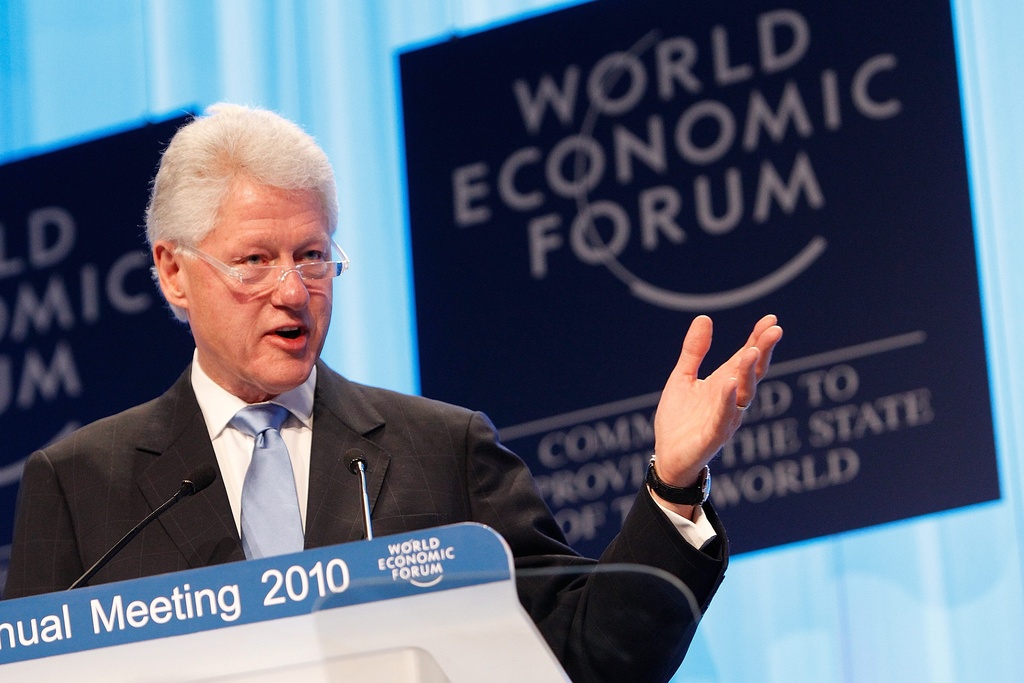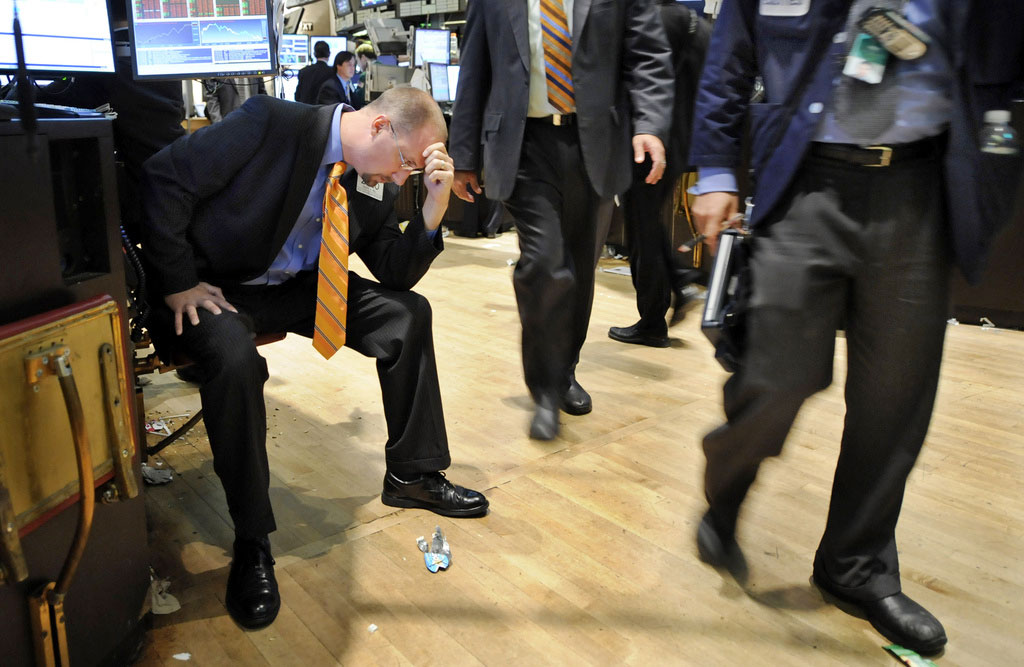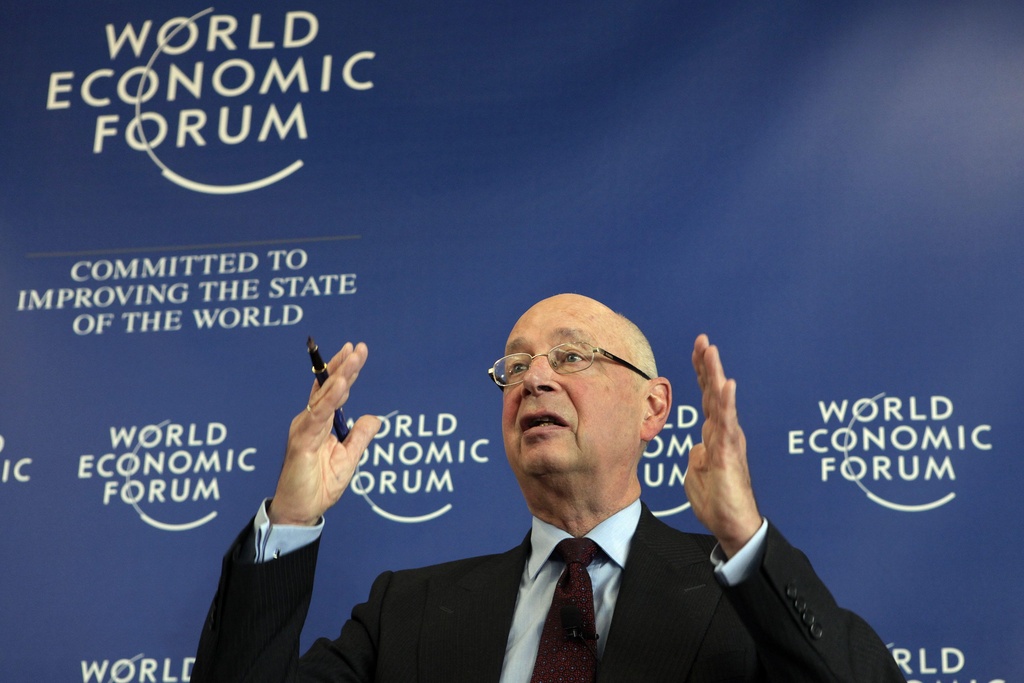Big business urged to restore Haiti’s economy

Humanitarian aid and the role of companies in helping to rebuild disaster-struck Haiti dominated proceedings on day two at the World Economic Forum in Davos.
Former United States President Bill Clinton appealed to the assembled executives to start doing business that would stimulate the economy, create jobs and form the basis of sustainable recovery in the Caribbean country.
The devastating earthquake that struck Haiti earlier this month has left around 150,000 people dead and more than 200,000 injured. It also shattered the infrastructure of the western hemisphere’s poorest country, leaving it in chaos.
But Clinton insisted that Haiti could recover from the disaster despite the huge task that lies ahead. “I believe a country can rise from the ashes in a very short time,” he said. “Don’t tell me they can’t do this. This is an opportunity for the Haitian people to build a country that they want to become.”
Irish entrepreneur Dennis O’Brien told the meeting that despite some appearances to the contrary, Haiti was a viable place to do business. Citing his own experience in Haiti with his mobile phone operator, Digicel, O’Brien said profits could still be made.
“[It is] a low cost country on the doorstep of the greatest market in the world – the United States,” he told the assembled participants.
Stable government
The most obvious areas for business opportunity were listed as construction, textiles manufacturing, tourism, property development and power production.
WEF has joined forces with the William J Clinton Foundation to encourage companies to engage in Haiti over the long run.
Speaking at a news conference on Tuesday, Robert Greenhill, WEF chief business officer, urged firms to “work to create work for future generations of Haitians, help build Haitian business for Haitians.”
Both Clinton and Greenhill praised the efforts of the most recent government to stabilise Haiti and raise its standing in the world. “Ironically, when the disaster struck, Haiti had the best government it had had in five years and it was starting to attract business,” said Greenhill.
The initiative demonstrated that the Davos forum was not just about economics and finance. The wide ranging sessions on Thursday included: “Rethinking Humanitarian Assistance”, “Rebuilding Fragile States” and “Revamping Development Aid”.
Employ locals
Speaking at an earlier session, Oxfam (Britain) chief executive Barbara Stocking welcomed the prospect of private enterprise engaging in Haiti. But she warned that it would have to be done in the right way and only after the initial stage of emergency relief had time to take effect.
“If a company is not already in [Haiti], it’s not a good time to start,” she said. “The real time for the private sector to come in…is in the recovery stage.”
“It’s got to be done in the right way, linking with local governments and people and making sure that what is done is for the poorest of the people. It is also good practice, for example in construction, not to bring in your own staff but to use locals – not just using them as workers, but skilling them up and leaving something behind.”
Humanitarian aid experts had spoken in Davos sessions of improvements in the way relief operations had dealt with disasters in the last few years. Better co-ordination and target setting among non-governmental organisations and local governments have made such operations much more effective.
Daunting task
But aid workers who have recently visited Haiti left no doubts about the daunting scale of the task they still face. The destruction of buildings and roads has hampered efforts to distribute vital supplies and many thousands of people are still without adequate shelter with the hurricane season approaching.
However, NGOs made clear to business leaders in Davos that they were ready to include the private sector in the rebuilding process.
“We understand that the private sector does some things better than anyone else, such as telecommunications and airport handling,” Catherine Bragg, assistant secretary general at the United Nations Office for the Coordination of Humanitarian Affairs, told one session.
“Ten years ago we used to think of [the private sector] as the bad guys. We think differently now.”
Matthew Allen in Davos, swissinfo.ch
The World Economic Forum started life as the European Management Forum in 1971.
Formed by German-born businessman Klaus Schwab, it was designed to connect European business leaders to their counterparts in the United States to find ways of boosting connections and solving problems.
It is a non-profit organisation with headquarters in Geneva and is funded by the varying subscription fees of its members.
The forum took its current name in 1987 as it broadened its horizons to provide a platform for finding solutions to international disputes. WEF claims to have helped calm disputes between Turkey and Greece, North and South Korea, East and West Germany and in South Africa during the apartheid regime.
WEF conducts detailed global and country specific reports and conducts other research for its members. It also hosts a number of annual meetings – the flagship being Davos at the beginning of each year.
In 2002, this meeting was moved to New York for a one-off change of venue to support the city following the 9/11 terrorist attacks of the previous year.
Davos has attracted a number of big names in the world of business, academia, politics and show business. These include: Nelson Mandela, Bill Clinton, Tony Blair, Bono, Angela Merkel, Bill Gates and Sharon Stone.
As the forum grew in size and status in the 1990s, it attracted rising criticism from anti-globalisation groups, complaining of elitism and self-interest among participants.
The 2010 Davos meeting will attract 2,500 delegates from 90 countries. It takes place from January 27-31

In compliance with the JTI standards
More: SWI swissinfo.ch certified by the Journalism Trust Initiative





You can find an overview of ongoing debates with our journalists here. Please join us!
If you want to start a conversation about a topic raised in this article or want to report factual errors, email us at english@swissinfo.ch.